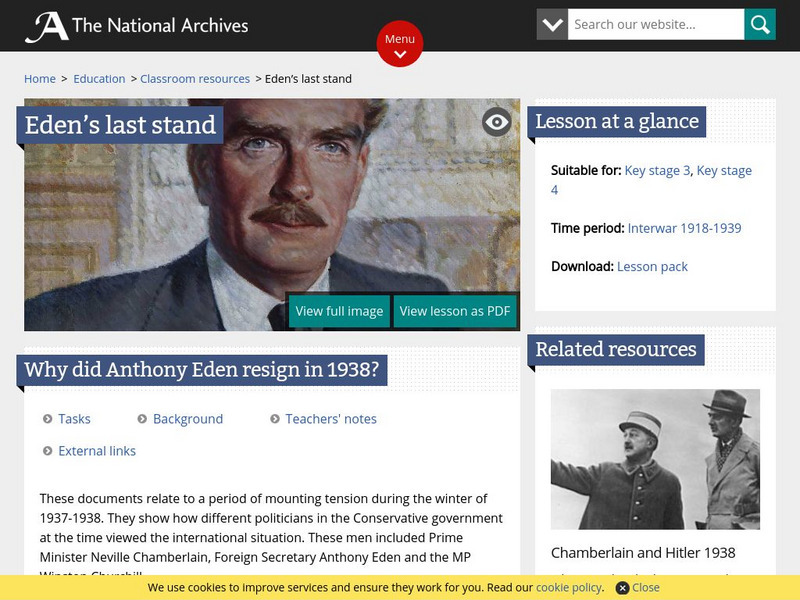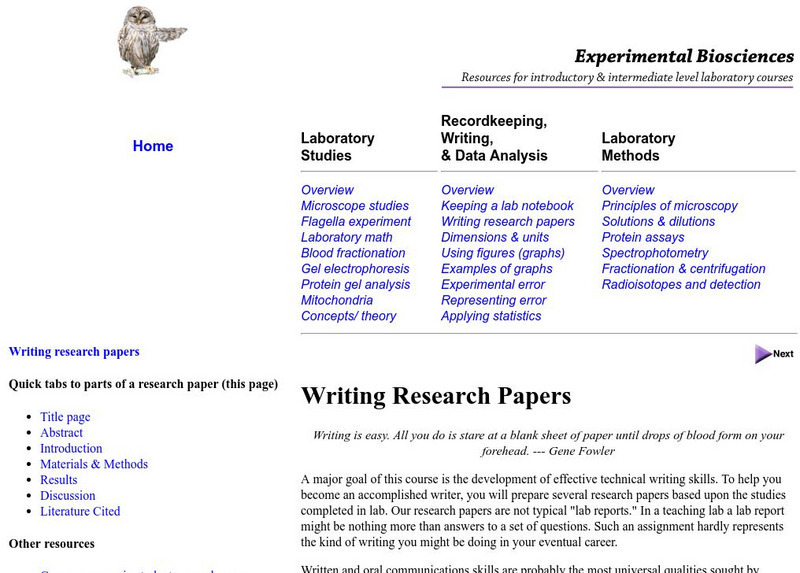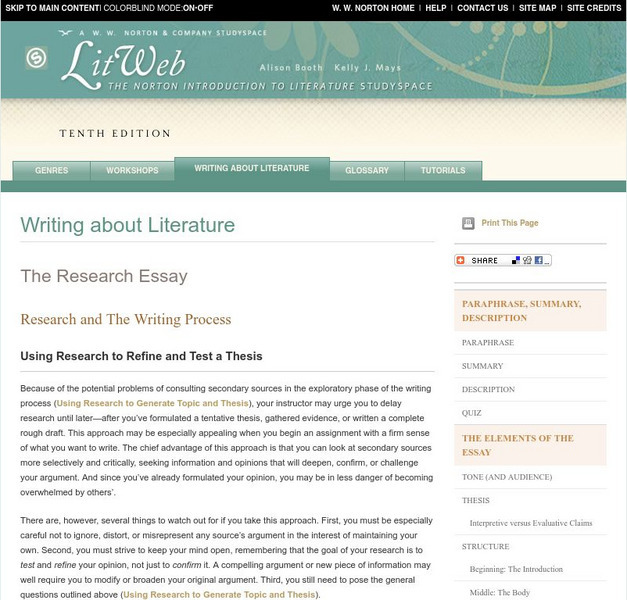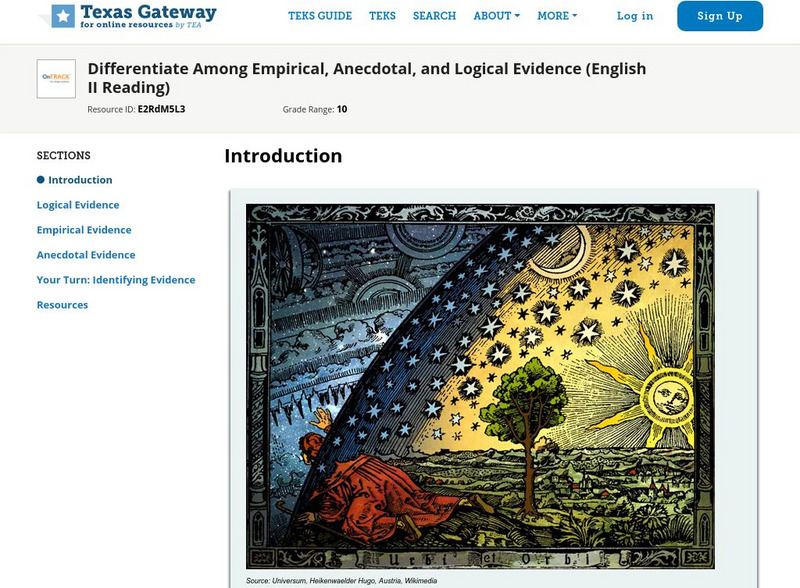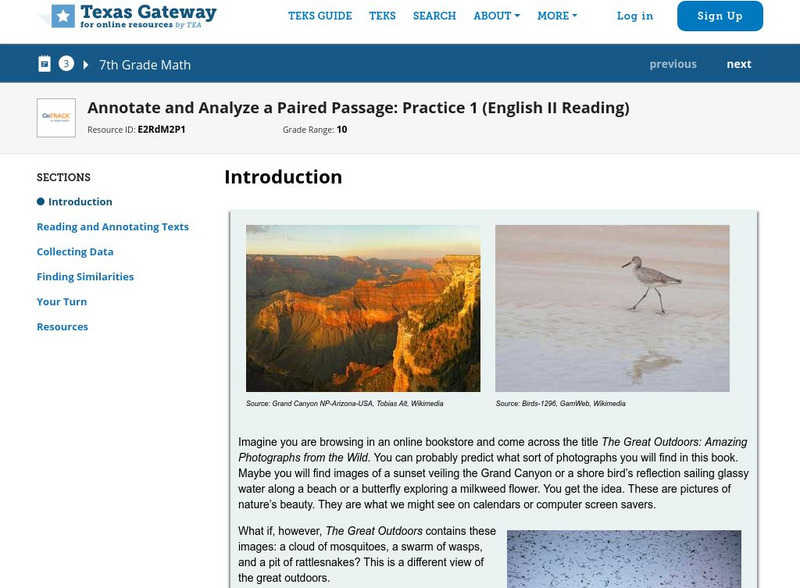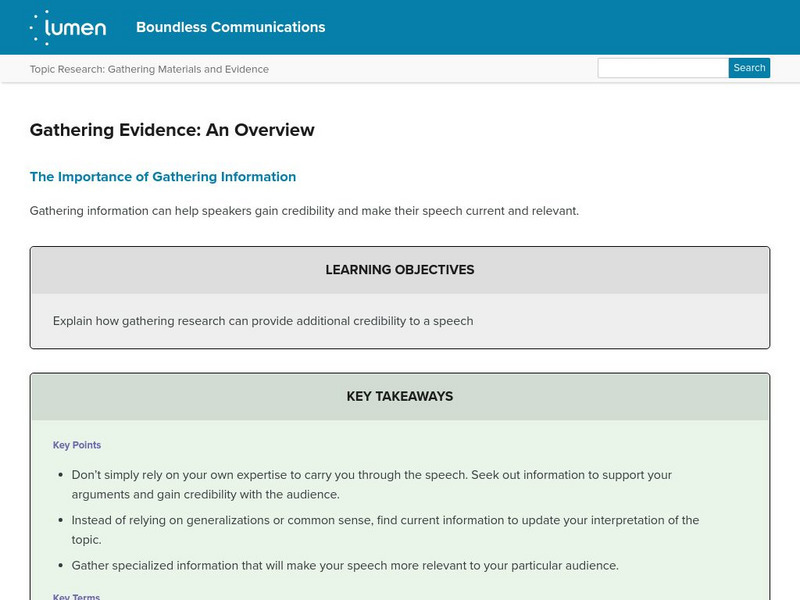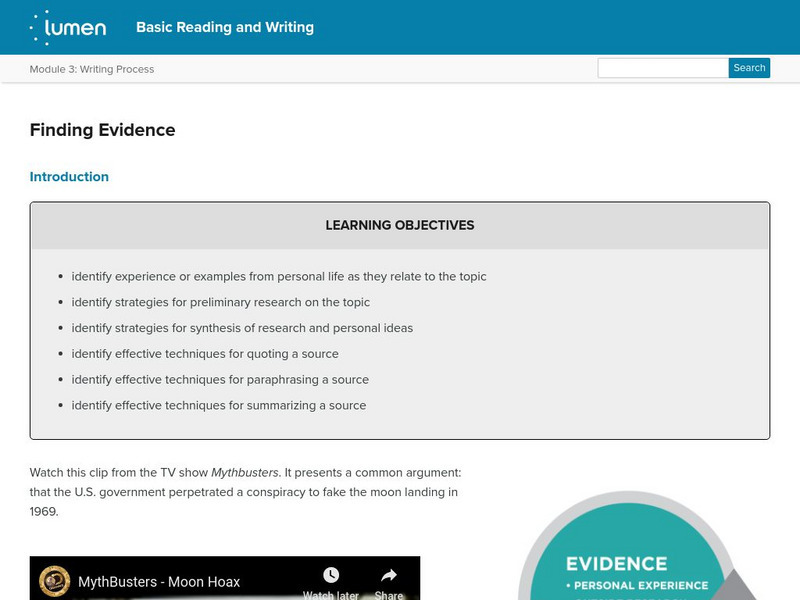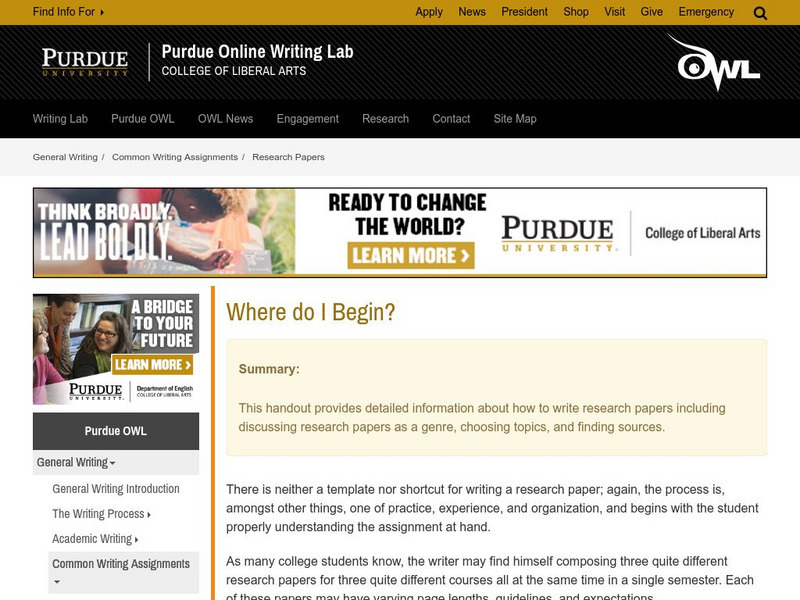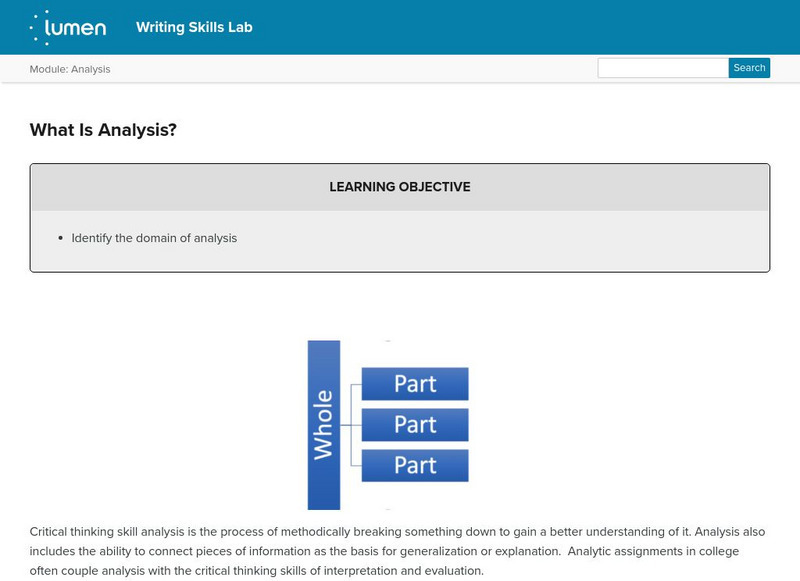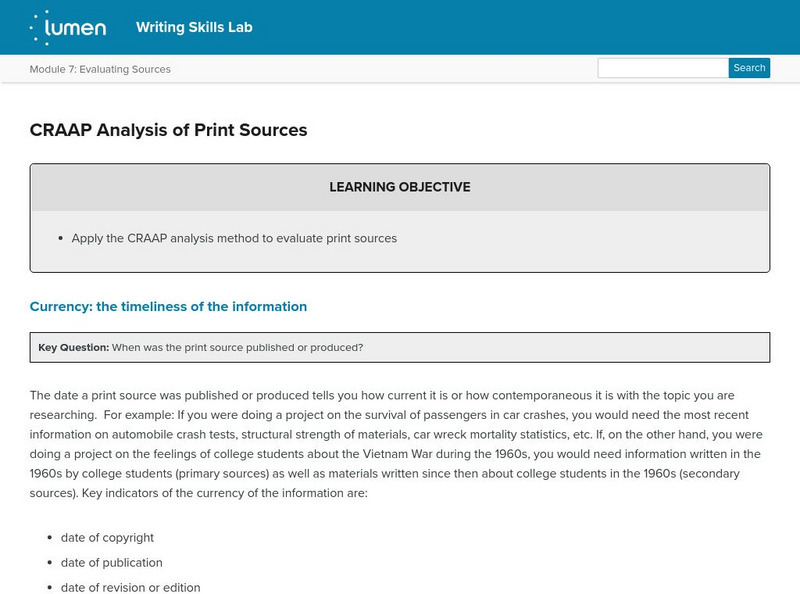ReadWriteThink
Read Write Think: Improving Student Writing Through Critical Thinking
Contains plans for a instructional activity about writing draft letters, or reflective letters about pieces of writing that students are submitting to an instructor. In addition to objectives and standards, this instructional plan...
Other
Beginning Reporting: Working With News Sources
Maintaining the right balance of familiarity and distance with your sources is key to good reporting. Journalist Jim Hall offers a few more tips on the human side of dealing with news sources.
E Reading Worksheets
E Reading Worksheets: Research Paper Topics
This Ereading article discusses the importance of choosing the "right" research topic. Afterwards, 101 possible research paper topics are listed. W.11-12.7 Research
National Archives (UK)
National Archives Learning Curve: How to Read a Document
This site is a lesson on Document Analysis using a letter written by Anthony Eden to PM Chamberlain in late 1937.
Other
Market Connections: Research Faq
This page offers explanations of research methods and how they work. Though aimed at businesses, it provides good information about conducting school research as well.
Leaf Group
E How: How to Write a Research Paper in Accounting
This article by Vaughnlea Leonard focuses on writing a research paper for an accounting class. The main differences from other research papers is choosing an appropriate topic and selecting sources written by accounting experts.
Free Management Library
Free Management Library: Basic Business Research Methods
A comprehensive resource that details research methods and interview designs along with information on how to conduct a focus group.
Sophia Learning
Sophia: In Text Citations: Lesson 6
This lesson introduces in-text citations and how to embed them in text. It is 6 of 7 in the series titled "In-Text Citations." W.9-10.8 Sources
Rice University
Rice University: Writing Research Papers
This site presents information about the necessary parts of a scientific research report. It also contains a sample abstract and introduction.
Other
Fair: Retractions of Reporting Are Quite Selective
Interesting essay on the use of unnamed or anonymous sources, accuracy of reports, and retractions of innaccurate reports by major news outlets. Eye opener.
Joe Landsberger
Study Guides & Strategies: Elements of a Research Paper
All the basics of writing the research paper are presented here very succinctly. Links to more in-depth looks at various steps are provided.
W. W. Norton
W. W. Norton: Writing Process: Using Research to Refine and Test a Thesis
Information about using research to refine and test a thesis.
Texas Education Agency
Texas Gateway: Differentiate Among Empirical, Anecdotal, and Logical Evidence
[Accessible by TX Educators. Free Registration/Login Required] Distinguish among different kinds of evidence in a text that supports conclusions and arguments in texts.
Texas Education Agency
Texas Gateway: Analyze an Argument: Practice 1 (English Ii Reading)
Analyze the quality, relevance, and credibility of evidence that supports or opposes an argument.
Texas Education Agency
Texas Gateway: Annotate and Analyze a Paired Passage: Practice 1
Read and annotate paired texts in order to make inferences, draw conclusions, and synthesize ideas and details using textual evidence.
Lumen Learning
Lumen: Boundless Communications: Gathering Evidence: An Overview
This lesson focuses on the importance of gathering information that provides evidence for your topic that is credible, current, and relevant. It also discusses how to find and evaluate sources. SL.9-10.1a Prepared/Discuss
Lumen Learning
Lumen: Writing Process: Finding Evidence
This activity focuses on finding evidence to support your thesis, how to incorporate your findings into your own work, and how to effectively quote, paraphrase, and summarize your information. CCSS.ELA-Literacy.CCRA.W.9, W.11-12.1b...
Online Writing Lab at Purdue University
Purdue University Owl: Where Do I Begin?
This article provides an overview of writing a research paper by first understanding the specific assignment and then offering links to how to begin research; outlining; drafting; and revising, editing, and proofreading.
Lumen Learning
Lumen: Analysis: Putting It Together: Analysis
This instructional activity focuses on analysis including an understanding of what analysis is, the keys to effective analysis, and the types of analytic assignments.
Lumen Learning
Lumen: Analysis: What Is Analysis?
This activity focuses on analysis including defining analysis and listing the essential skills of analysis.
Lumen Learning
Lumen: Analysis: Evidence
This instructional activity focuses on evidence in the analysis including being selective with evidence, being clear and explicit, and moving past obvious interpretations.
Lumen Learning
Lumen: Analysis: Rhetorical Analysis
This lesson focuses on defining rhetorical analysis and identifying and applying different types of analytic processes. It also provides a practice activity.
Lumen Learning
Lumen: Evaluating Sources: Introduction to Types of Sources
This is an introduction to evaluating sources and the types of sources available.
Lumen Learning
Lumen: Evaluating Sources: Craap Analysis of Print Sources
This lesson focuses on evaluating print sources using CRAAP Analysis: Currency, relevance, authority, accuracy, and purpose. A practice exercise is included. W.9-10.8 Sources

